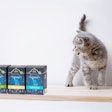
A few weeks ago, I blogged about the recent trend of US consumers filing class action lawsuits against pet food companies. Unlike past litigation resulting from pet food recalls, which caused beloved pets to become ill or, tragically, die, this newer wave of lawsuits tends to focus on pet food label claims or ingredient sourcing.
For example, in the most recent actions, the same lead plaintiff filed class action suits against Tyson Pet Products and J.M. Smucker/Big Heart Pet Brands over “Made in the USA” claims on pet treats. In the fall of 2015, Nestlé Purina PetCare and Mars Petcare were both hit with class action lawsuits because they reportedly used fish-based ingredients that were obtained via slave trade in southeast Asia.
In both instances, I expressed my belief that such lawsuits often arise because they have become a far-too-easy way for US consumers to express displeasure with brands and their practices, especially in states like California. And, the label-related class action suits—which are becoming more and more common and being applied to various types of pet food label claims—seem rather frivolous, I wrote.
As could be expected, I received several comments from people disagreeing with my most recent blog post. (Note: to comment on this blog or any article on PetfoodIndustry.com, you have to create a Disqus account, which is free and easy to do; please see below. Many websites use Disqus for their comment function, so once you have an account, you probably can use it on multiple sites and social media.)
Actually, I expected much more feedback! First, I have to sincerely thank the commenters, because I truly appreciate when people not only read what I write but also feel compelled to share their reactions, even if they disagree.
And, I have to say that most of the comments made me think and re-evaluate my perspective on these class action lawsuits. For instance, Anthony Hepton, presumably a pet owner, remarked on the lack of transparency and the difficulty in communicating with pet food companies. “If you have tried to get pet food manufacturers to answer basic questions related to product quality and safety, you would understand why consumers resort to litigation,” he wrote.
Dr. Laurie Coger, a wholistic veterinarian who has her own radio show and blog, looked back to the 2007 melamine-related pet food recalls, as I did, but also included more recent cases that have eroded pet owner trust, such as the class action lawsuit settled at the end of last year by Blue Buffalo. To be more objective, I should have at least mentioned that, too, because the company’s label and marketing claims were found to be false (even though Blue Buffalo still denies any wrongdoing).
Coger also didn’t buy my “vote with your wallet” argument—as in, if you’re unhappy with a brand or company, just stop buying its products. “When you suggest people just ‘vote with their wallets,’ you miss two major functions of a class action suit—to raise public awareness of the issue, and to impact the companies’ behavior in a significant manner, which means money,” she commented.
But the comments that really hit home for me honed in on the basic, commonsense concept that companies (pet food or otherwise) should just do the right thing in the first place. In a private email to me, a pet food professional who’s with an industry supplier said the company does its best to follow state and federal laws and regulations, does not misrepresent its products or make illegal claims, and expects its competitors, vendors and customers to act in the same manner. “The best defense is acting responsibly,” this person wrote, adding that if a company pushes the boundaries of the law, makes false claims or causes physical or financial damage, it should expect a challenge.
Those thoughts were echoed by Coger. “Fortunately, there is a simple solution. Make a good product. Don’t lie about what’s in it, where it comes from or how it’s made.”



















